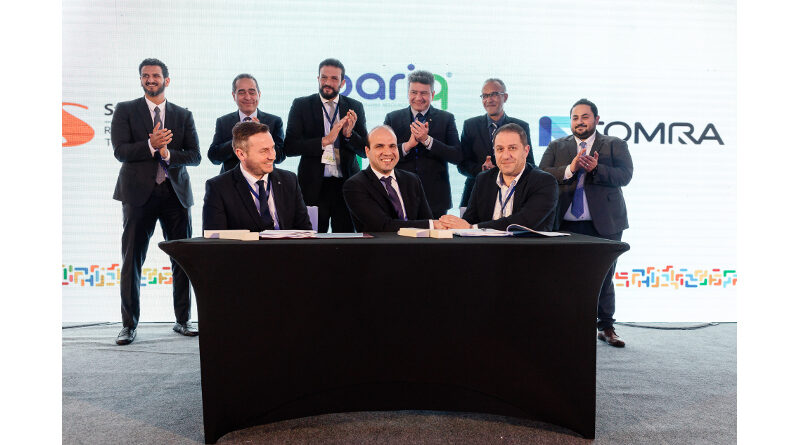New bottle-to-bottle recycling plant in Egypt
BariQ for Techno and Advanced Industries celebrates the signing for constructing a new PET bottle-to-bottle recycling plant that will feature the latest plastic sorting systems from Tomra Recycling in Giza Governorate, Egypt.
The Egypt-based company is the leading rPET producer in the MENA region. In its quest to meet the increasing demand for rPET in Africa and Europe, pursue its vision to become one of the most prominent recyclers globally and the biggest in the MEA region, BariQ invests in a state-of-the-art plastic recycling facility. Its industry experience and network of influential partners, combined with the recycler’s capability to produce food-grade rPET provide the necessary foundation to bring recycling in the MEA region to the next level.
Sunday, February 13, marked a new milestone in the company’s history and a promising outlook for the industry: BariQ welcomed Ministers from the Egyptian Government, ambassadors, brand owners, equipment providers as well as local and foreign financial institutes to its expansion ceremony to officially announce and celebrate the construction of a new bottle-to-bottle recycling facility in Giza Governorate, Egypt. The event revealed the new plant’s design to produce more than 35,000 metric tons of food-grade rPET per annum while saving more than 80,000 tons of CO2 emissions. The new facility will complement a recycling plant that has been fully operational since 2010, processing more than 3 t/h of PET bottles. To date, the company produces an annual amount of 15,000 t of food-grade rPET that is compliant with the standards set by Efsa, FDA, Health Canada and Reach.
Meeting demands with a new facility
Due to the increased demand for rPET from numerous industries, BariQ is scaling up its capabilities and constructing a new plant. Planned to be fully operational in 2023, the new facility will process 3.5-4 metric tons of post-consumer PET waste per hour. As quality demands become more stringent and the amount of post-consumer plastic waste is on the rise, the choice of future-forward sorting technology and reliable partners was crucial and led to BariQ selecting Tomra.
The new plant will be equipped with 2 new generation Autosort for pre-sorting PET bottles and trays and 2 Autosort Flake units for additional purification that includes polymer sorting by material and colour, and the reliable removal of metal contaminants. Thanks to the combination of the latest technologies in a single machine, Autosort features Flying Beam and Deep Laiser technologies among others to accurately separate PET bottles by material and colour in a multi-step sorting process. After the pre-sorted material has been shredded, washed, and dried, the Autosort Flake machines create a pure clear/light blue PET flake fraction which is then processed and transformed into pellets. The end product, a predicted 35,000 t/, will be sold to global brand owners and converters looking for increasing their recycled content with food-grade rPET.
The strain of mismanaged waste and legislation pushes
The problem of waste piling up in nature is a prevalent issue of global proportions and countries in Africa are no exception to this. Lacking investments and insufficient waste management infrastructure in some regions make it difficult to promote high quality recycling without downgrading plastics. Given the fact that the African population is predicted to double by 2025 and a rapidly growing volume of post-consumer plastic waste, the need to find solutions and set up legislations to enable recycling and mitigate plastic pollution becomes even more urgent.
Despite the challenges, the continent is taking strong action in tackling plastic waste. A complete or partial ban on plastic carrier bags has already been introduced in 30 countries to combat plastic waste blocking waterways and drainage systems. Apart from that, countries like South Africa have recognized the enormous potential of legislation such as Extended Producer Responsibility (EPR) schemes to finance and advance waste and recycling infrastructure. EPR schemes give brand owners (producers) the responsibility for the adequate and sustainable management of the plastic products they place on the market and therefore help to make sure that plastic waste is properly managed. Whereas Kenya, Ghana, and Nigeria already have an EPR system in place, South Africa only made it mandatory for plastic packaging importers and manufacturers in 2021. Thus, brand owners, whether they operate locally or globally, are asked to adhere to the regulatory framework and contribute to achieving the goals set.

